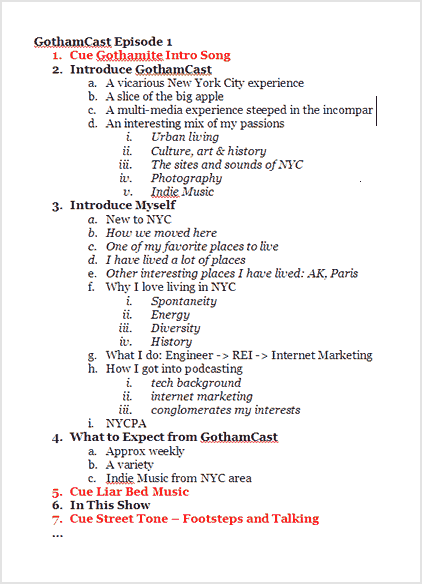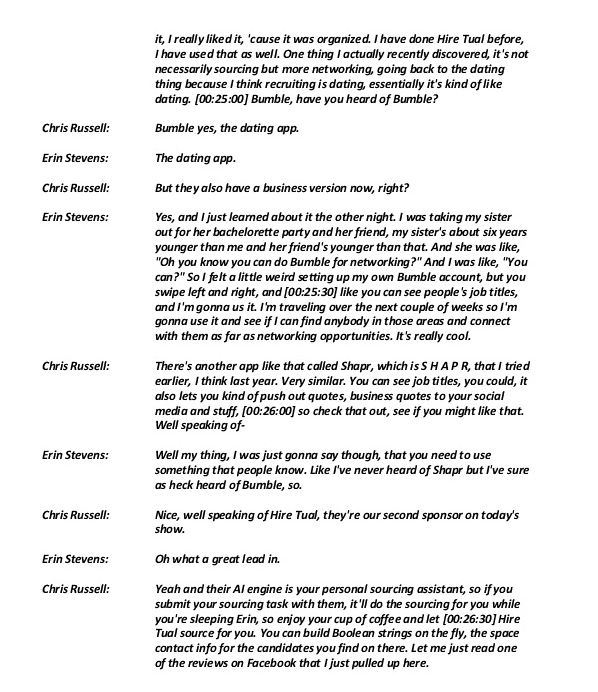Why Scripting Your Podcast is Important
When starting your first podcast, it can be tempting to just hit record and start talking. However, taking the time to script your podcast can make a world of difference in the quality of your content. A script helps you stay on track, ensures that you cover all the points you want to make, and helps you deliver your message in a clear and concise manner. It also allows you to structure your podcast in a way that is engaging for your listeners, keeping them interested and coming back for more.
Additionally, scripting your podcast can help you avoid awkward pauses, ums and ahs, and other verbal fillers that can detract from the professionalism of your podcast. By having a script prepared, you can focus on delivering your content confidently and smoothly. You can also use your script to practice and refine your delivery, ensuring that you are presenting your ideas in the most effective way possible.

Overall, taking the time to script your podcast can help you create a polished and professional product that will resonate with your audience and keep them coming back for more.
How to Choose a Format for Your Podcast Script
When it comes to scripting your podcast, one of the first decisions you will need to make is choosing a format for your script. There are several different approaches you can take, depending on the style and content of your podcast. One common format is the traditional script, which consists of a written document with dialogue, narration, and other elements clearly laid out. This format works well for scripted shows with a structured format and specific content.

Another option is the outline format, which provides a more flexible framework for your podcast. An outline can include key points, transitions, and other important elements, while allowing you to speak more naturally and improvise as needed. This format is ideal for podcasts that are more conversational or interview-based, where a strict script may feel too rigid.
You may also choose to combine elements of both formats, creating a hybrid script that includes both scripted content and room for improvisation. This can be a good option for podcasts that blend storytelling with spontaneous conversation, allowing you to strike a balance between structure and spontaneity.
Researching and Planning Your Podcast Script

Before you start writing your podcast script, it’s important to do some research and planning to ensure that you have a clear direction for your content. Begin by identifying your target audience and the main topics you want to cover in your podcast. Consider what information or insights you can provide that will be valuable and engaging for your listeners.
Next, gather any research or sources that you will need to support your podcast content. This may include statistics, quotes, anecdotes, or other information that will help to bolster your arguments and make your podcast more informative and credible. Organize your research in a way that makes sense for your script, whether that means creating a detailed outline or compiling a list of key talking points.
Once you have a clear idea of the direction and content of your podcast, it’s time to start writing your script. Begin by outlining the main points you want to cover, and then fill in the details with supporting information, examples, and transitions. Be sure to consider the flow and pacing of your podcast, and think about how you can keep your listeners engaged and interested throughout.
Writing Your Podcast Script
When it comes to actually writing your podcast script, it’s important to keep a few key principles in mind. First and foremost, be sure to write in a conversational tone that reflects your personality and style. Podcasting is a personal medium, and your listeners will respond best to content that feels authentic and relatable.
In addition, keep your script clear and concise, avoiding jargon or overly complex language that may confuse your audience. Break up your content into short, digestible chunks, and use headings, bullet points, and other formatting tools to make your script easy to follow. Consider including opportunities for audience engagement, such as prompts for questions or feedback, to keep your listeners involved in the conversation.
As you write your script, be sure to read it aloud to yourself to ensure that it flows smoothly and sounds natural. Practice delivering your lines with enthusiasm and clarity, and make any necessary revisions to improve the overall quality of your content. Remember, your podcast script is a tool to help you communicate effectively with your audience, so take the time to craft a script that will engage and inspire your listeners.
Editing and Revising Your Podcast Script
Once you have written your podcast script, it’s important to take the time to edit and revise it to ensure that it is clear, engaging, and error-free. Begin by reading through your script carefully, looking for any typos, grammatical errors, or awkward phrasing that may detract from the quality of your content. Make any necessary corrections, and consider asking a friend or colleague to review your script for feedback.
Next, focus on the structure and flow of your script, making sure that it is well-organized and easy to follow. Consider adding transitions between sections, and make sure that your content flows logically from one point to the next. Look for any areas where you can tighten up your writing, removing any unnecessary words or phrases that may slow down your delivery.
Finally, practice delivering your script out loud, paying attention to your tone, pacing, and emphasis. Make any necessary adjustments to improve the clarity and impact of your content, and continue to rehearse until you feel confident in your delivery. Remember, the more time and effort you put into editing and revising your podcast script, the better your final product will be.
Recording Your Podcast Script
When it comes time to record your podcast, having a well-written and rehearsed script will make the process much smoother and more efficient. Before you hit record, take the time to set up your recording equipment and ensure that you have a quiet, distraction-free space to work in. Practice reading through your script a few times to get comfortable with the content and delivery, and make any final adjustments as needed.
As you record your podcast, remember to speak clearly and confidently, and try to convey the enthusiasm and passion you have for your topic. Use your script as a guide to keep you on track, but don’t be afraid to improvise or add in a personal touch to make your content more engaging. Be sure to take breaks as needed to rest your voice and maintain your energy throughout the recording process.
After you have finished recording, take the time to review your audio and make any necessary edits to improve the quality of your content. Remove any mistakes or outtakes, and add in any music, sound effects, or other elements that will enhance the overall listening experience. Once you are satisfied with the final product, it’s time to share your podcast with the world and start building your audience.
Promoting Your Podcast Script
Once you have scripted and recorded your first podcast, it’s time to start promoting your content to attract listeners and build your audience. Begin by sharing your podcast on social media platforms, such as Facebook, Twitter, and Instagram, to reach a wider audience and generate buzz around your show. Consider creating promotional graphics or videos to highlight key points and attract attention to your podcast.
You can also reach out to other podcasters or influencers in your niche to ask for shoutouts or collaborations, helping to expand your reach and attract new listeners. Consider submitting your podcast to online directories and platforms, such as iTunes, Spotify, and Stitcher, to make it easier for people to find and subscribe to your show. Encourage your listeners to leave reviews and ratings, as positive feedback can help to boost your podcast’s visibility and credibility.
Finally, consider creating a website or blog for your podcast, where you can share show notes, behind-the-scenes content, and other bonus material to engage your audience and keep them coming back for more. Remember, promoting your podcast is an ongoing process, so be sure to stay active and engaged with your audience to build a loyal and dedicated following.
Conclusion
Scripting your first podcast can be a daunting task, but with the right approach and preparation, you can create a high-quality and engaging show that will resonate with your audience. By choosing a format for your script, researching and planning your content, writing and editing your script, recording and promoting your podcast, you can create a polished and professional product that will attract listeners and keep them coming back for more. Remember, the key to success in podcasting is consistency, so be sure to continue refining and improving your content to build a loyal and dedicated following. Happy podcasting!
